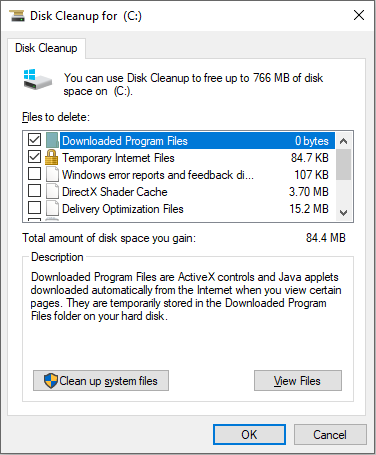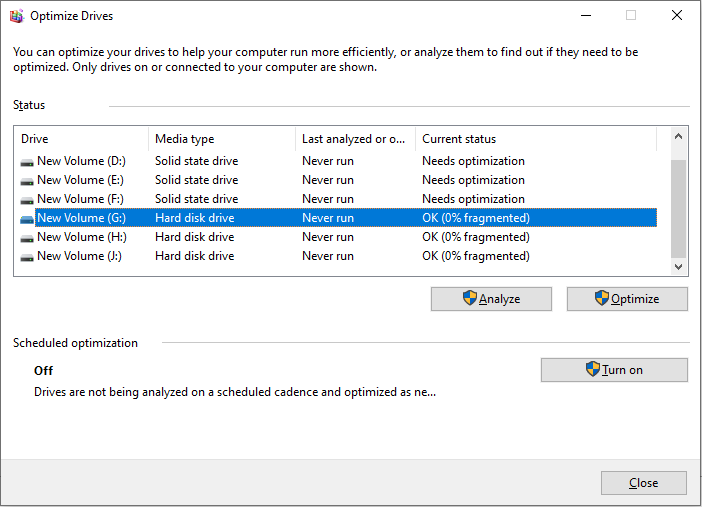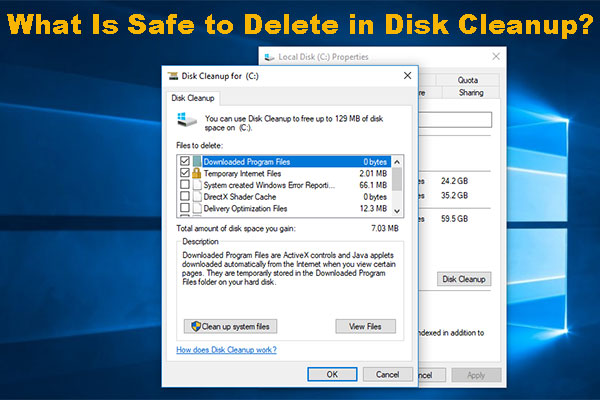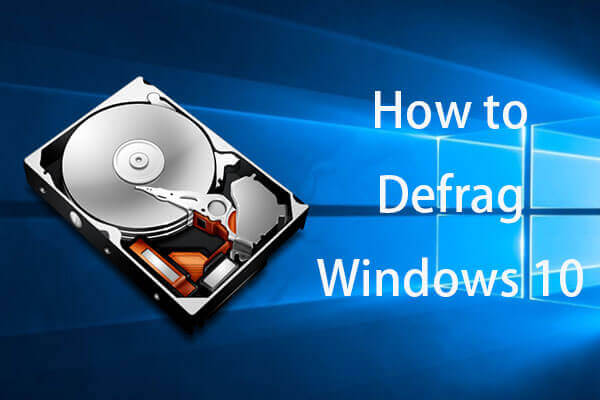Disk Cleanup vs Defrag
Both Disk Cleanup and Disk Defragment help to optimize computers, but there are differences between Disk Cleanup and Disk Defragment. You can read this section to learn the two functions.
What Is Disk Cleanup
Disk Cleanup is a Windows built-in tool that allows you to remove unnecessary files and temporary files on your computer, including Temporary Internet Files, DirectX Shader Cache, Temporary files, Windows error reports, Thumbnails, and more.
As using your computer, there are a large number of cache files generated and stored on your computer for quick access. However, those cache files and corrupted data will take up a considerable amount of disk space. You should run Disk Cleanup regularly to clean those data to free up your disk. This will enhance the performance of your computer and applications.

You can delete files by using Disk Cleanup, but there are chances that you mistakenly remove the required files. In this situation, you can try to recover lost files with the help of MiniTool Power Data Recovery. Get the free edition by clicking the download button below to have a try.
MiniTool Power Data Recovery FreeClick to Download100%Clean & Safe
What Is Disk Defragment
Disk Defragment, also briefly called defrag, is a utility used to rearrange data on your hard disk drive. When you modify or save large files but without enough contiguous empty spaces for those files, fragmentation occurs, which means the data is scattered across different locations on your hard drive disk. Those fragmented data will lag your computer performance.
Defragmentation assists in reorganizing fragmented data appropriately. Since your computer doesn’t need a longer time to gather scattered files, the computer performance is well improved. Additionally, after defragmenting, your files are well-organized which helps to extend the life of your HDD.

Differences Between Disk Cleanup and Disk Defragment
The above content briefly introduces Disk Cleanup and Defrag. To further discern the two utilities, you can read this section to learn the different functions of the two.
- For purpose: Disk Cleanup targets to clean redundant files to free up disk space, while Disk Defragment aims at rearranging file segments to make them well-organized.
- For applicable objects: Disk Cleanup can be performed on both HDD and SSD, but Disk Defragment can only be used on HHD. If you defrag an SSD, it will shorten the lifespan of the SSD.
- For use frequency: You can use Disk Cleanup when required or once a few months. For Disk Defragment, as modern computers are equipped with optimization tools, there is no need to manually perform a defragmentation on your HDD. Alternatively, you can choose to defrag your disk once a month.
Alternatively, to improve the computer performance, you can try MiniTool System Booster. This all-in-one tool contains many functions, including fixing computer issues, removing junk files, managing computer settings, and more.
MiniTool System Booster TrialClick to Download100%Clean & Safe
Should I Run Disk Cleanup or Defragment First
Which tool is required in your situation? Which one should you run first? Those questions trouble many computer users. If you are one of them, this part might give you some useful information.
When you find your computer lags or more disk space is required, you can use Disk Cleanup and Defrag. You are highly suggested to run Disk Cleanup first because this utility enables you to delete unwanted files. After this process, your disk drive will have more space to perform defragment. Otherwise, not enough free space and a large number of unnecessary files make the defragment process difficult to complete.
Bottom Line
This post explains the definition and differences between Disk Cleanup and Defrag to help you distinguish the two utilities. Additionally, you are suggested to use Disk Cleanup first when trying to improve your computer performance.

